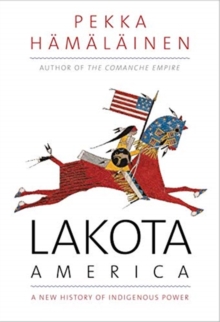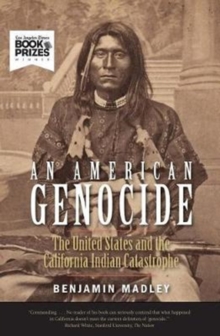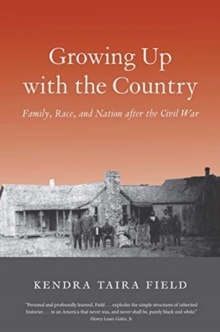
Frontiers in the Gilded Age : Adventure, Capitalism, and Dispossession from Southern Africa to the U.S.-Mexican Borderlands, 1880-1917 Hardback
by Andrew Offenburger
Part of the The Lamar Series in Western History series
Hardback
Description
The surprising connections between the American frontier and empire in southern Africa, and the people who participated in both“A valuable first step toward creating a global history of the concepts of the frontier, borderlands, and colonialism.â€â€”Carol Higham, Reviews in American History This book begins in an era when romantic notions of American frontiering overlapped with Gilded Age extractive capitalism.
In the late nineteenth century, the U.S.-Mexican borderlands constituted one stop of many where Americans chased capitalist dreams beyond the United States.
Crisscrossing the American West, southern Africa, and northern Mexico, Andrew Offenburger examines how these frontier spaces could glitter with grandiose visions, expose the flawed and immoral strategies of profiteers, and yet reveal the capacity for resistance and resilience that indigenous people summoned when threatened.
Linking together a series of stories about Boer exiles who settled in Mexico, a global network of protestant missionaries, and adventurers involved in the parallel displacements of indigenous peoples in Rhodesia and the Yaqui Indians in Mexico, Offenburger situates the borderlands of the Mexican North and the American Southwest within a global system, bound by common actors who interpreted their lives through a shared frontier ideology. Published in cooperation with the William P. Clements Center for Southwest Studies, Southern Methodist University
Information
-
Available to Order - This title is available to order, with delivery expected within 2 weeks
- Format:Hardback
- Pages:320 pages, 23 b-w illus.
- Publisher:Yale University Press
- Publication Date:13/08/2019
- Category:
- ISBN:9780300225877
Information
-
Available to Order - This title is available to order, with delivery expected within 2 weeks
- Format:Hardback
- Pages:320 pages, 23 b-w illus.
- Publisher:Yale University Press
- Publication Date:13/08/2019
- Category:
- ISBN:9780300225877










